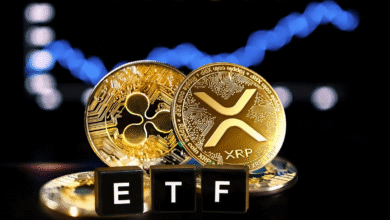Ethereum Smart Contract Audit Services Complete Security Guide 2025

The rapid growth of decentralized finance (DeFi) and Web3 applications has made Ethereum smart contract audit services more critical than ever before. With billions of dollars locked in smart contracts, a single vulnerability can lead to catastrophic financial losses. Professional audit services have become the cornerstone of blockchain security, protecting projects from exploits that could devastate entire ecosystems.
Whether you’re launching a new DeFi protocol, creating an NFT marketplace, or developing any blockchain application, comprehensive security auditing is no longer optional—it’s essential. The complexity of modern smart contracts demands expert analysis to identify potential vulnerabilities before malicious actors can exploit them.
What Are Ethereum Smart Contract Audit Services
Ethereum smart contract audit services encompass comprehensive security assessments conducted by blockchain security experts to identify vulnerabilities, bugs, and potential exploits in smart contract code. These services go far beyond simple code reviews, involving systematic analysis of contract logic, security patterns, and possible attack vectors.
Professional auditors examine every aspect of your smart contract, from basic syntax errors to complex economic vulnerabilities. They analyze how contracts interact with external systems, assess opportunities for gas optimization, and ensure compliance with established security standards. The audit process typically involves both automated tools and manual review by experienced security researchers.
Core Components of Smart Contract Audits
Smart contract audits consist of several critical components that work together to provide comprehensive security coverage. Static analysis tools scan code for known vulnerability patterns, while dynamic testing simulates various attack scenarios. Manual code review by expert auditors identifies logic flaws that automated tools might miss.
The audit process also includes economic analysis to identify potential manipulation of tokenomics or governance mechanisms. Auditors examine upgrade mechanisms, access controls, and external dependencies to ensure they don’t introduce security risks. Integration testing verifies that contracts function correctly within their intended ecosystem.
Why Your Project Needs Professional Smart Contract Auditing
The blockchain industry has witnessed numerous high-profile hacks resulting in millions of dollars in losses. The DAO attack in 2016, which led to $60 million in stolen funds, demonstrated the critical importance of thorough security auditing. More recent incidents like the Poly Network hack ($600+ million) and various DeFi protocol exploits continue to highlight these risks.
Professional Ethereum smart contract audit services provide multiple layers of protection for your project. Beyond preventing financial losses, audits build trust with users, investors, and partners. Projects with proper audit certificates often see higher adoption rates and better fundraising outcomes.
Building User Trust and Confidence
Users are increasingly aware of smart contract risks and actively seek projects with proper security credentials. A comprehensive audit report serves as proof of your commitment to security and user protection. This transparency builds community trust and encourages greater participation in your ecosystem.
Insurance providers and institutional investors often require audit reports before engaging with DeFi projects. Having proper audit documentation opens doors to additional funding sources and partnership opportunities that might otherwise be unavailable.
Types of Smart Contract Security Audits
Automated Security Scanning
Automated scanning tools provide the first line of defense against common vulnerabilities. These tools can quickly identify known patterns like reentrancy attacks, integer overflows, and access control issues. Popular tools include Slither, Mythril, and Securify, each offering different strengths in vulnerability detection.
While automated tools are efficient for catching common issues, they cannot replace human expertise in identifying complex logic flaws or economic vulnerabilities. The most effective audit strategies combine automated scanning with comprehensive manual review.
Manual Code Review and Analysis
Expert auditors perform line-by-line analysis of smart contract code, examining logic flows, state transitions, and potential edge cases. This manual review process identifies sophisticated vulnerabilities that automated tools often miss, such as complex reentrancy patterns or subtle economic exploits.
Manual review also assesses code quality, gas optimization opportunities, and adherence to best practices. Auditors evaluate the overall architecture to ensure it aligns with the project’s intended functionality and security requirements.
Economic and Tokenomics Security Assessment
Modern DeFi protocols involve complex economic mechanisms that require specialized analysis. Auditors examine tokenomics models, governance structures, and incentive systems to identify potential manipulation vectors. This includes analyzing liquidity mechanisms, reward distributions, and voting systems.
Economic audits also assess potential MEV (Maximum Extractable Value) vulnerabilities and front-running risks. These assessments ensure that economic incentives align properly and don’t create opportunities for exploitation.
Comprehensive Smart Contract Vulnerability Assessment

Common Vulnerability Categories
Smart contracts face numerous vulnerability categories, each requiring specific detection and mitigation strategies. Reentrancy attacks remain among the most dangerous, allowing attackers to drain funds by repeatedly calling functions before state updates complete. Integer overflow and underflow vulnerabilities can lead to unexpected behavior in calculations.
Access control vulnerabilities occur when functions lack proper permission checks, potentially allowing unauthorized users to execute critical operations. Front-running vulnerabilities enable attackers to manipulate transaction ordering for profit, while oracle manipulation attacks exploit external data dependencies.
Advanced Threat Vectors
Sophisticated attackers employ increasingly complex strategies to exploit smart contracts. Flash loan attacks combine multiple vulnerabilities across different protocols to extract value without initial capital. Governance attacks manipulate voting mechanisms to change protocol parameters maliciously.
Cross-chain vulnerabilities emerge as projects integrate with multiple blockchains, creating new attack surfaces. Time-based attacks exploit timestamp dependencies and block number manipulations to gain unfair advantages.
The Professional Audit Process Explained
Initial Project Assessment
The audit process begins with a comprehensive project assessment where auditors review project documentation, architecture diagrams, and intended functionality. This phase establishes the audit scope, identifies critical components, and develops a customized testing strategy.
Auditors also review the development team’s experience, previous security measures, and any existing security documentation. This background analysis helps prioritize audit efforts and identify areas requiring special attention.
Code Analysis and Testing Phases
The technical audit phase involves multiple stages of analysis, starting with automated scanning to identify obvious vulnerabilities. Static analysis tools examine code without execution, while dynamic analysis tests contract behavior under various conditions.
Fuzzing techniques generate random inputs to test contract robustness, while formal verification methods mathematically prove certain security properties. Integration testing ensures contracts function correctly within their broader ecosystem.
Report Generation and Remediation
Audit findings are compiled into comprehensive reports categorizing vulnerabilities by severity and providing detailed remediation recommendations. Critical issues require immediate attention, while medium and low-priority issues should be addressed before deployment.
The remediation phase involves close collaboration between auditors and development teams to implement fixes without introducing new vulnerabilities. Follow-up reviews ensure that remediation efforts successfully address identified issues.
Blockchain Security Best Practices

Development Security Standards
Implementing security-first development practices significantly reduces audit complexity and costs. Following established frameworks like OpenZeppelin’s security standards provides tested, secure implementations of common functionality. Regular code reviews during development catch issues early when they’re easier and cheaper to fix. Implementing comprehensive testing suites ensures that code changes don’t introduce new vulnerabilities.
Ongoing Security Maintenance
Security is not a one-time concern but requires ongoing attention throughout a project’s lifecycle. Regular security updates, monitoring for new vulnerability patterns, and staying current with evolving attack vectors are essential. Bug bounty programs incentivize white-hat hackers to identify vulnerabilities before malicious actors can exploit them. These programs provide ongoing security validation beyond initial audit efforts.
DeFi Protocol Security Auditing
Unique DeFi Challenges
DeFi protocols face distinctive security challenges due to their complex economic mechanisms and external dependencies. Liquidity pool manipulations, oracle attacks, and governance exploits represent sophisticated threat vectors requiring specialized expertise.
Ethereum smart contract audit services for DeFi must address these unique challenges through comprehensive economic analysis and stress testing. Auditors simulate various market conditions to identify potential failure modes and manipulation opportunities.
Integration Security Considerations
DeFi protocols typically integrate with multiple external contracts, creating complex dependency chains that must be thoroughly analyzed. Each integration point represents a potential attack vector requiring careful security assessment.
Auditors examine how protocols handle external failures, price volatility, and unexpected behaviors from integrated systems. This analysis ensures that protocols remain secure even when external dependencies behave unexpectedly.
Web3 Security Services Overview
Comprehensive Security Solutions
Modern Web3 projects require holistic security approaches that extend beyond individual smart contract audits. Comprehensive security services include infrastructure auditing, frontend security assessment, and operational security reviews.
These services examine the entire technology stack, from smart contracts to user interfaces, ensuring consistent security standards across all project components. Regular security monitoring and incident response planning provide ongoing protection.
Emerging Security Technologies
The Web3 security landscape continues evolving with new tools and methodologies. Formal verification techniques provide mathematical proofs of security properties, while AI-powered analysis tools identify subtle vulnerability patterns.
Zero-knowledge proof systems offer new privacy and scalability solutions but require specialized security expertise. As these technologies mature, audit services must adapt to address their unique security considerations.
Choosing the Right Audit Service Provider
Evaluation Criteria
Selecting appropriate Ethereum smart contract audit services requires careful consideration of multiple factors. Provider experience, technical expertise, and track record are fundamental considerations, but reputation within the blockchain community is equally important.
Review the provider’s audit methodology, tools, and reporting standards. Comprehensive audit reports should include detailed vulnerability descriptions, remediation recommendations, and executive summaries for non-technical stakeholders.
Cost and Timeline Considerations
Audit costs vary significantly based on project complexity, codebase size, and required turnaround time. While cost is important, prioritizing the cheapest option often proves counterproductive if audit quality suffers. Timeline planning should account for potential remediation cycles and follow-up reviews. Rushing audit processes increases the risk of missed vulnerabilities and inadequate security coverage.
The Future of Smart Contract Security
Evolving Threat Landscape
The smart contract security landscape continues evolving as attackers develop more sophisticated techniques and new vulnerability classes emerge. Cross-chain protocols, layer-2 solutions, and complex DeFi mechanisms create new attack surfaces requiring adapted security approaches.
Regulatory developments may introduce new compliance requirements for audit documentation and security standards. Staying ahead of these changes ensures that projects remain compliant while maintaining robust security postures.
Also Read: Ethereum’s Rally Could Fuel 7x Gains for XRP, DOG, E, and ADA
Technology Advancements
Emerging technologies like formal verification, automated bug detection, and AI-powered security analysis promise to enhance audit effectiveness and efficiency. However, these tools will complement rather than replace human expertise in identifying complex vulnerabilities.
The integration of security considerations into development toolchains through DevSecOps practices will help identify issues earlier and reduce audit complexity. This shift toward security-first development represents the future of blockchain security.
Conclusion
Ethereum smart contract audit services represent an essential investment in your project’s security, user trust, and long-term success. The rapidly evolving DeFi and Web3 landscapes present increasingly sophisticated security challenges that require expert analysis and comprehensive protection strategies.
Professional auditing goes beyond simple code review, encompassing economic analysis, integration testing, and ongoing security monitoring. The cost of comprehensive audits pales in comparison to potential losses from security breaches that could devastate projects and harm users.
As the blockchain ecosystem matures, security standards continue rising, and users become more discerning about project safety. Projects that prioritize security through professional auditing will be better positioned for sustainable growth and user adoption.




